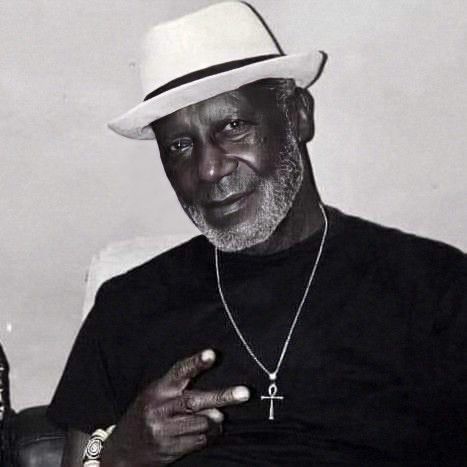Veteran highlife legend Gyedu-Blay Ambolley has raised concerns over what he describes as the “fast-food” approach to music by the younger generation of artistes.
Speaking on Joy Prime’s Prime Time show, Ambolley cautioned that the industry’s heavy dependence on digital tools is eroding creativity, originality, and the cultural depth that once defined Ghanaian music.

Ambolley noted that while technology has made music production faster and more accessible, it has also encouraged a culture of shortcuts. According to him, many young artistes now prioritise speed and convenience over skill and artistry.
“Shortcuts in music are not good,” he stressed. “It makes your music sharp sharp; it doesn’t last.”
He explained that the phrase sharp sharp refers to a style of music-making that prioritises quick results over depth, resulting in songs that fade quickly rather than standing the test of time.
Drawing from his decades-long career, which includes pioneering rap-infused highlife in the 1970s, Ambolley lamented that many artists are bypassing the learning process altogether.
“In the past, you had to learn instruments, study theory, and perform live,” he recalled. “These experiences taught patience, discipline, and originality.”
But today, he argued, “a beat can be downloaded, lyrics quickly patched together, and a song released in hours.” This, he said, often happens with little human interaction or genuine collaboration.
Ambolley also expressed concern over the decline in communication among collaborators in the age of remote music-making.
He recounted instances where younger artistes send him tracks to feature on but fail to involve him in the final stages of the project.
“When they send the music, I do my part, but after that, they don’t come back for me to listen to the entire song. Before I know it, it’s on air,” he revealed, describing it as evidence of how impersonal and fragmented the process has become.

Despite his criticisms, Ambolley maintained that the future of Ghanaian music is not without hope. He praised artistes such as Kofi Kinaata, who he said have remained faithful to the values of storytelling, songwriting, and cultural authenticity, even in a digital-driven industry.
“If you don’t have good people around you, there’s no one to advise you when the path you’re taking is not the right one,” he advised, highlighting the importance of mentorship and supportive networks.
Ambolley’s warning comes at a time when the global music industry is increasingly influenced by algorithms, streaming trends, and online hype. His message is a call for Ghanaian artistes to balance technological convenience with artistic integrity and cultural preservation.
As one of Ghana’s most respected highlife icons, his voice adds weight to ongoing conversations about how the next generation of musicians can sustain the relevance, quality, and longevity of Ghanaian music.




